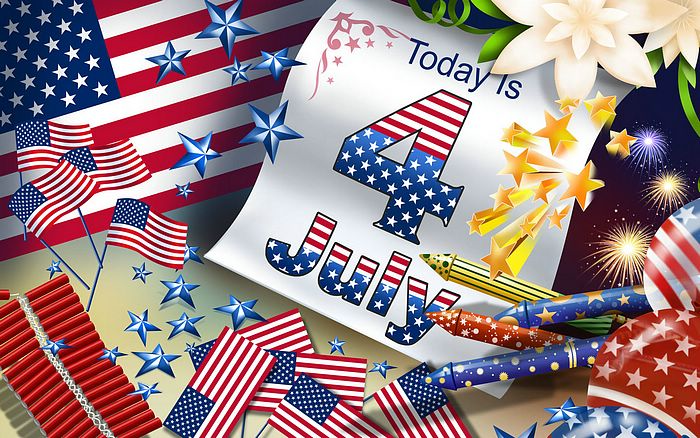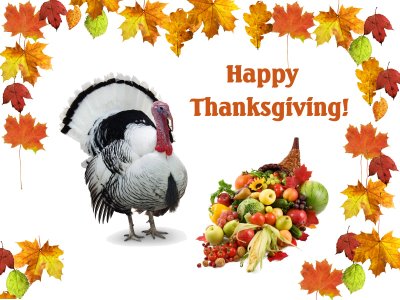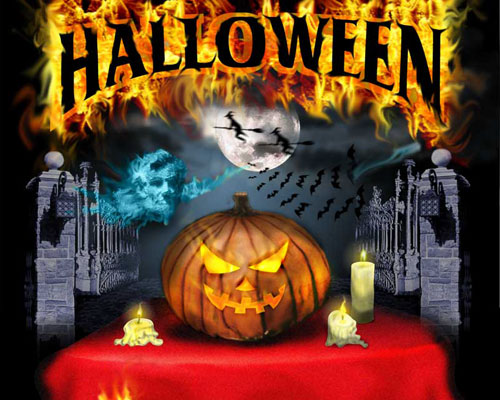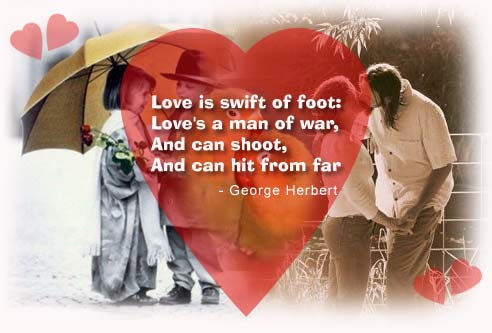
- •Семей 2011
- •Пояснительная записка
- •Содержание
- •Четыре типа чтения английских гласных Первый тип чтения английских гласных (алфавитное звучание)
- •1. Прочтите слова и объясните, почему они так произносятся:
- •2. Прочтите слова и объясните, почему они так произносятся:
- •3. Прочтите слова и объясните причину переосмысливания звукового восприятия английских гласных букв:
- •4. Прочитайте вслух следующие слова, обращая внимание на типы чтения гласных букв
- •5. Прочитайте следующие скороговорки как можно быстрее:
- •1. Вставьте "to be" в Present Simple, обращая внимание на личные местоимения.
- •2. Вставьте "to be" в Present Simple, обращая внимание на личные местоимения.
- •3. Переведите на английский язык, употребляя глагол to be в Present Simple и обращая внимание на употребление личных местоимений.
- •4. Закончите предложения. Используйте личные местоимения I / me и т. Д.
- •1. Прочитайте диалог по ролям, переведите его, выучите наизусть.
- •2. Выучите следующие слова и словосочетания наизусть:
- •3. Составьте свой диалог, используя нижеперечисленные фразы.
- •1. Выберите правильное слово. Используйте притяжательные местоимения:
- •2. Заполните пробелы личными или притяжательными местоимениями
- •1. Прочитайте диалог по ролям, переведите его.
- •2. Выучите следующие слова наизусть:
- •3. Переделайте диалог из упр.1, используя личную информацию и слова из упр.2, выучите диалог наизусть.
- •1. Поставьте следующие существительные во множественное число (обратите внимание на артикли: неопределенный артикль во множественном числе опускается, определенный артикль сохраняется).
- •2. Поставьте следующие предложения во множественное число.
- •3. Переведите на английский язык следующие пары слов.
- •1. Прочитайте текст, подставьте свои данные в пропущенные места, дополните текст личной информацией.
- •2. Выучите новые слова наизусть:
- •3. Просмотрите нижеперечисленные слова, они могут вам помочь при составлении текста о себе и своей семье.
- •4. Ответьте на следующие вопросы письменно:
- •5. Найдите все существительные во множественном числе в тексте «About myself» и выпишите их.
- •1. Перефразируйте следующие словосочетания и предложения, употребляя притяжательный падеж.
- •2. Переведите на английский язык следующие словосочетания:
- •3. Поставьте существительные в притяжательную форму:
- •1. Прочитайте текст "My family". Переведите. Подставьте личную информацию. Выберите предложения, которые подходят под описание вашей семьи, дополните текст и перескажите его.
- •2. Выучите новые слова:
- •3. Ответьте на вопросы письменно:
- •1. Вставьте артикль, где необходимо.
- •2. Вставьте артикль, где необходимо.
- •3. Вставьте артикль, где необходимо.
- •4. Вставьте артикль, где необходимо.
- •1. Прочитайте текст, переведите, переделайте текст под себя, перескажите.
- •2. Выучите следующие слова и словосочетания наизусть.
- •1. Вставьте артикль, где необходимо.
- •2. Вставьте артикль, где необходимо,
- •3. Вставьте артикль, где необходимо
- •1. Прочитайте текст, переведите, перескажите. Можете дополнить своей информацией.
- •2. Выучите следующие слова и словосочетания наизусть.
- •3. Ответьте на вопросы по тексту.
- •1. Употребите правильно оборот there is/are.
- •3. Переведите следующие предложения на английский язык, используя оборот there is/are:
- •1. Прочитайте текст, переведите.
- •2. Ответьте на вопросы.
- •3. Изучите следующие слова и словосочетания:
- •5. Перескажите составленное вами описание вашего жилья. (10 предложений – «3», 15-17 – «4», 20 и выше – «5»)
- •1. Образуется степени сравнения следующих прилагательных, переведите:
- •2. Раскройте скобки, употребляя требующуюся форму прилагательного.
- •3. Составьте два предложения к каждому предложению, одно с использованием сравнительной степени сравнения прилагательного, другое – с превосходной.
- •1. Прочитайте, переведите текст. Ознакомьтесь с географической картой Великобритании. Перескажите текст.
- •2. Выучите следующие слова наизусть:
- •Summer-лето
- •Population-население
- •3. Ответьте на следующие вопросы:
- •1. Раскройте скобки, употребляя требующуюся форму прилагательного.
- •2. Вставьте as ... As, so ... As или than.
- •3. Вставьте as ... As или so ... As.
- •1. Прочитайте, переведите текст.
- •2. Выучите следующие слова наизусть.
- •3. Ответьте на следующие вопросы:
- •1. Напишите прописью следующие числительные:
- •1. Прочитайте, переведите текст.
- •2. Выучите следующие слова наизусть.
- •3. Ответьте на следующие вопросы:
- •1. Прочитайте, переведите текст.
- •2. Выучите новые слова (Vocabulary):
- •3. Ответьте на вопросы (Questions):
- •Into the pocket – в карман (куда?)
- •1. Вставьте предлоги on, in или into.
- •2. Вставьте предлоги on, in или at.
- •1. Прочитайте, переведите текст.
- •2. Выучите новые слова (Vocabulary):
- •3. Ответьте на вопросы (Questions):
- •1. Put in the correct preposition: at, on , in (Вставьте предлоги on, in или at).
- •1. Прочитайте, переведите текст.
- •2. Выучите новые слова (Vocabulary):
- •3. Ответьте на вопросы (Questions):
- •2. Put the correct preposition into each gap (if necessary). (Поставьте нужный предлог, если это необходимо)
- •1. Прочитайте, переведите текст.
- •1. Write the he/she/it form of these verbs. Напишите глаголы, используя их в 3 лице ед.Ч., переведите и выучите глаголы.
- •2. Write the negative sentences. Напишите отрицательные предложения.
- •3. Write the opposite (positive or negative). Напишите противоположные предложения
- •4. Write questions with Do/ Does. Напишите вопросительные предложения, начинающиеся с Do/ Does
- •5. Put the verb into the correct form. Поставьте глагол в правильную форму.
- •1. New words. Прочитайте новые слова, используйте их при переводе текста.
- •2. Read and translate the text (Прочитайте и переведите текст):
- •3. Answer the following questions (Ответьте на следующие вопросы).
- •1. Choose regular or irregular verbs and tell the past form. Напишите прошедшую форму глаголов (правильных и неправильных).
- •2. Write questions. Напишите вопросы.
- •3. Put the verb into the correct form. Use Past Simple. Употребите глаголы в прошедшей форме.
- •1. New words. Прочитайте новые слова, используйте их при переводе текста.
- •2. Read and translate the text (Прочитайте и переведите текст):
- •3. Answer the following questions (Ответьте на следующие вопросы).
- •1. Раскройте скобки, употребляя глаголы в Present Simple, Past Simple или Future Simple.
- •1. New words. Прочитайте новые слова, используйте их при переводе текста.
- •2. Read and translate the text (Прочитайте и переведите текст):
- •3. Answer the following questions (Ответьте на следующие вопросы).
- •2. Ask the questions. Задайте вопросы.
- •3. Put in am/is/are/do/don't/does/doesn't. Заполните предложения am/is/are/do/don't/does/doesn't.
- •4. Put the verb in the present continuous (I am doing) or present simple (I do). Используйте глагол в present continuous или present simple.
- •1. New words. Прочитайте новые слова, используйте их при переводе текста.
- •2. Read and translate the text (Прочитайте и переведите текст):
- •3. Answer the following questions (Ответьте на следующие вопросы).
- •1. Раскройте скобки, употребляя глаголы в форме Past Continuous Tense.
- •2. Заполните пропуски, употребляя время Past Simple или Past Continuous
- •3. Open the brackets (откройте скобки) using Present Continuous or Past Continuous
- •1. New words. Прочитайте новые слова, используйте их при переводе текста.
- •2. Read and translate the text (Прочитайте и переведите текст):
- •3. Answer the following questions (Ответьте на следующие вопросы).
- •I. Поставьте глаголы в следующих предложениях в форму Future Continuous
- •2. Составьте предложения во времени Future Continuous
- •3. Раскройте скобки, употребляя глаголы в одном из будущих времен: Future Simple, Present Continuous или Future Continuous
- •1. New words. Прочитайте новые слова, используйте их при переводе текста.
- •2. Read and translate the text (Прочитайте и переведите текст):
- •3. Answer the following questions (Ответьте на следующие вопросы).
- •II. Упражнения на закрепление грамматического материала (Exercises)
- •1 You are asking each other questions beginning Have you ever…? And answer. Задайте и ответьте на вопросы.
- •3 Complete the sentences with for …or since… Заполните предложения, используя for …или since…
- •1. New words. Прочитайте новые слова, используйте их при переводе текста.
- •2. Read and translate the text (Прочитайте и переведите текст):
- •3. Раскройте скобки, употребляя глаголы в Past Simple, Past Continuous и Past Perfect.
- •1. New words. Прочитайте новые слова, используйте их при переводе текста.
- •2. Read and translate the text (Прочитайте и переведите текст):
- •1. Read and translate the text (Прочитайте и переведите текст):
- •1. Прочтите и переведите следующие предложения:
- •2. Заполните вторую часть предложения
- •1. New words. Прочитайте новые слова, используйте их при переводе текста.
- •2. Read and translate the text (Прочитайте и переведите текст):
- •1. Заполните предложение, употребляя глагол в скобках
- •2. Раскройте скобки, употребляя глаголы в требуемой форме
- •1. New words. Прочитайте новые слова, используйте их при переводе текста.
- •2. Read and translate the text (Прочитайте и переведите текст):
- •1 Заполните предложение, употребляя глагол в скобках
- •1. New words. Прочитайте новые слова, используйте их при переводе текста.
- •2. Read and translate the text (Прочитайте и переведите текст):
- •1. Раскройте скобки, употребляя глаголы Present Simple Passive.
- •2. Составьте предложения из слов, стоящих в скобках, используя страдательный залог в настоящем времени.
- •1. New words. Прочитайте новые слова, используйте их при переводе текста.
- •2. Read and translate the text (Прочитайте и переведите текст):
- •1. Заполните предложения с помощью модальных глаголов can или may.
- •2. Заполните предложения с помощью модальных глаголов must или had to.
- •3. Переведите следующие предложения на английский язык.
- •1. New words. Прочитайте новые слова, используйте их при переводе текста.
- •2. Read and translate the text (Прочитайте и переведите текст):
- •1. Вставьте частицу “to” перед инфинитивом, где необходимо и переведите предложения на русский язык
- •1. New words. Прочитайте новые слова, используйте их при переводе текста.
- •2. Read and translate the text (Прочитайте и переведите текст):
- •1. Complete the following sentences using a gerund and translate them into Russian. (Заполните следующие предложения, используя герундий и переведите их на русский язык)
- •1. New words. Прочитайте новые слова, используйте их при переводе текста.
- •2. Read and translate the text (Прочитайте и переведите текст):
- •1. New words. Прочитайте новые слова, используйте их при переводе текста.
- •2. Read and translate the text (Прочитайте и переведите текст):
- •Список литературы:
1. New words. Прочитайте новые слова, используйте их при переводе текста.
Reflect – отражать
Common – общий
Easter – Пасха
Widely – широко
Thanksgiving – День Благодарения
Turkey – индейка
Favourite – любимый
Neighbours – соседи
«Trick or treat!» - «Сладости или мы подшутим над вами»
The rest of – остальные
2. Read and translate the text (Прочитайте и переведите текст):
Every country has its own holidays. They reflect the history of the country and its cultural and religious traditions. Some religious holidays are common in different countries. They are Christmas and Easter.
Americans and British celebrate Christmas on the 25th of December. They buy a lot of presents for each other, for their parents, children and friends.
The New Year's day, the 1st of January is not so widely celebrated in the US and in the UK as we do it in Kazakhstan.
Of course, the most important holiday in America is the 4th of July, The Independence Day.
The holidays when people don't go to work are: Martin Luther King's day on the 20th of January, Labour Day on the 7th of September and Thanksgiving on the last Friday of November. On Thanksgiving Americans usually eat turkey.
The 31st of October is the children's most favourite holiday — Halloween. On this day children, dressed in funny dresses visit their neighbours and say «Trick or treat!» and get sweets.
The rest of the holidays are usually on weekends. They are: the Flag's Day, Mother's Day, Armed Forces Day. Americans also celebrate Lincoln's birthday, Washington's birthday, President's Day in February.
The 14th of February is Valentine's Day or as it is called «All lovers day».






Lesson 35
Примерные задания на обязательную контрольную работу за II семестр
I. Put Present, Past or Future Simple:
I (not to go) to the cinema every day.
When you (to leave) home for school tomorrow?
You (to watch) TV tomorrow?
What you (to buy) at the shop yesterday? I (to buy) a book.
I (to like) to meet my friends, so we often (to go) somewhere together.
II. Give the antonyms to the following words:
Вчера
Всегда
часто
III. Give the general name for:
the Colorado, the Mississippi, the Yukon
the Rocky, the Appalachian
Adelaide, Sydney, Washington
Ontario, Great Salt
IV. Answer the following questions?
1. What is the total area of Australia?
2. What is the population of Australia?
3. What is the capital of Australia?
4. What is the official language of Australia?
5. What climate does Australia have?
6. What is Australia rich in?
7. What are the main industries in the country?
8. What rivers can you call?
9. What interesting facts can you call?
10. What are the big cities in Australia?
V. Give English equivalents:
1. парящий орел
2. поддерживать крышу
3. звезда
4. единорог
5. полезные ископаемые: уголь и железная руда
VI. Translate the following sentences into English:
Миссисипи – самая большая река США.
Ниагарский водопад является одной из главных достопримечательностей Канады и США.
Государственные языки Новой Зеландии – английский и маори.
Новая Зеландия богата полезными ископаемыми.
VII. True or false:
The territory of Kazakhstan is bigger than the territory of Canada.
The capital of Kazakhstan is Almati.
There are 14 regions in Kazakhstan.
The national symbols are just flag and anthem.
VIII. Open the brackets and use the verbs in an appropriate form (Conditional Sentences)
1. If you (to give) me your address, I shall write you a letter.
2. If my sister doesn’t go to the south, we (to spend) the summer in St. Petersburg.
3. If they (not to go) to Moscow last year, they would not know have heard that famous musician.
4. If you (not to get) tickets for the concert, we shall stay at home.
5. If he (not to read) so much, he would not be so clever.
IX. Use Present Perfect or Past Simple.
1. …(you/ever/be) to the United States? 2. My hair is clean. I…(wash) it. 3. I…(wash) my hair before breakfast this morning. 4. When I was a child, I…(not/like) a sport. 5. Kathy loves traveling. She…(visit) many countries.
X. Use the verb in Passive:
1. I (to give) a very interesting book at the library last Friday. 2. Many houses (to build) in our town every year. 3. This work (to do) tomorrow. 4. This text (to translate) at the last lesson. 5. These trees (to plant) last autumn
